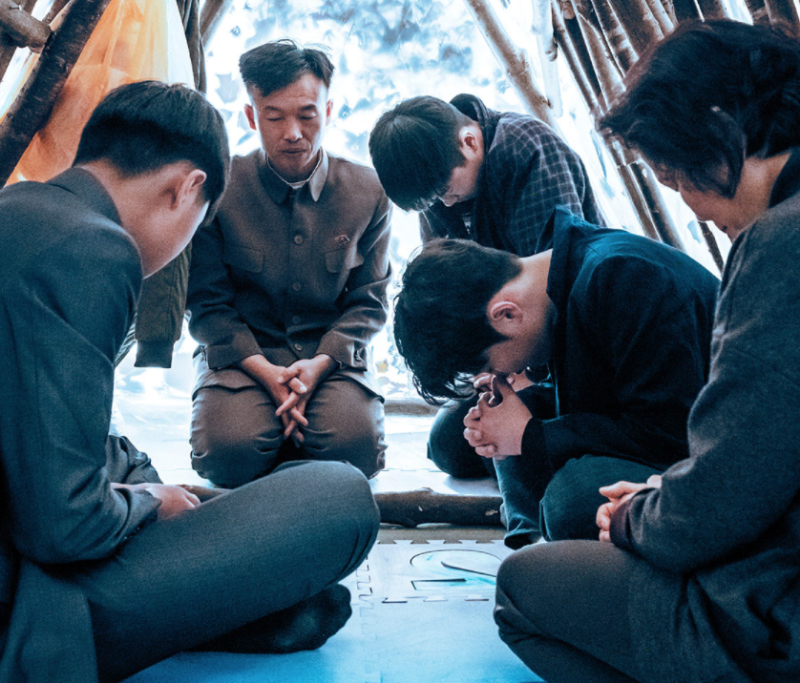
A new report from Open Doors sheds light on the Christian prisoners in North Korea today and the faithful are urged to pray for them by their names.
Christian persecution in North Korea dates back to the 1950's, per Huffpost, and it is for that reason that the country is consistently named as the number one persecutor of Christians on the list curated by the watchdog organization Open Doors USA (via FOX News).
In fact, North Korea has been on the top of the list for 18 years now. As a Juche socialist state, North Korea follows a Constitution that says "citizens have freedom of religious beliefs," but the actions of the government led by Kim Jong-un says otherwise. To this day, there are Christian prisoners in communist North Korea, and the faithful are urged to pray for them.
Here are some Christians who are imprisoned in North Korea and are in need of prayers, according to Open Doors:
Kim Jong-Wook is a Baptist missionary who ran underground churches and provided shelter for North Koreans who fled to China. He also helped North Koreans escape to South Korea. He was arrested in 2013 and has been sentenced to a life of hard labor for various charges, including "malignantly hurting the dignity" of the ruling Kim family. He is currently in poor health.
Kim Kook-Kie, along with Choi Chun-Kil, was arrested and sentenced to hard labor in 2015. They were Christian missionaries who were accused of "conducting religious propaganda" against the communist state. Kie is also in poor health.
Ko Hyon-Chol is a missionary who gained South Korean citizenship after defecting from the North. He was accused of having a plot to kidnap children from North Korea to be sold for adoption abroad. He was sentenced to lifelong hard labor in 2016.
Kim Won-Ho, like Ko, also defected from North Korea, acquired South Korean citizenship, and became a missionary. He was sentenced to a life of hard labor in March of 2016.
The faithful are urged to pray for these and the many more Christian prisoners in North Korea who are forced to do hard labor in detention centers, re-education camps, and political labor camps.
A life of hard labor
Ex-prisoners who spoke to Open Doors revealed that Christian prisoners in North Korea's re-education camps follow a strict daily routine that began with a 5:30 a.m. roll call and a 6 a.m. breakfast with meager meals. Hard labor begins at 8 a.m., when prisoners are forced to do agricultural work for four hours straight, without breaks.
At noon, another insufficient meal is given along with a 2-hour break. At 2 p.m., prisoners are sent back to work for another four hours. At 6 p.m., "criticism session" followed, wherein prisoners must "criticize each other and ourselves about the things we did wrong that day." Then they were given dinner.
At 8 p.m. would come the toughest part of the day, wherein Christian prisoners in North Korea would need to stay awake despite being physically and mentally tired from the day, in order to pay attention to ideological training. At 9:30 p.m., prisoners are accounted for before their bedtime at 10 p.m.
As for those in detention centers and political labor camps, the punishment is more severe. Christian prisoners in North Korea who are sent to detention centers are no longer questioned and instead are subject to a harsh beating without food or water. Those in political labor camps are prisoners who are believed to have committed the most serious crimes and are often never heard of again.
The report estimates that there are about 50,000 to 70,000 Christian prisoners in North Korea today. The Korean Workers' Party Transcendental Guidance System accuses the "American imperialists" of spreading religion to "crush our republic," Christianity Today reported.
Open Doors Asia's Jan Vermeer said, "Often we think of North Korea as a weird country ruled by a line of nutty dictators. But these are very smart people who have left no room for any type of religion, because that would set the people free in their mind."

































